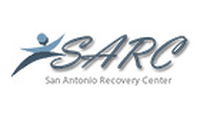Sober Living and Halfway Houses

When you're in recovery, people, places and things are important – especially if you're newly sober. It’s important to live in an environment that supports your new life in recovery. Sober living supports the recovery lifestyle by providing housing, meals and programming to help individuals maintain sobriety.
Sober Living Facilities vs. Halfway Houses
Sober living homes are residences that supports individuals in recovery by providing a sober environment and community of sober roommates. Sober living facilities may also be called sober homes, recovery housing or halfway houses.
What is a halfway house?
A halfway house typically incorporates treatment programming into its residence requirements. Halfway houses may be government-funded, requiring a certain amount of treatment programming per week, and may have minimum or maximum stay requirements.
What’s a sober living facility?
A sober living facility can vary in programming, length of stay and policies or requirements. The amount of programming will vary in sober living homes that are not formal halfway houses – some may still have weekly groups, while others won't require any ongoing counseling or group sessions.
Depending on where you are in your recovery journey, extra group programming may be helpful as you continue to learn more about staying sober. But no matter what type of facility you choose, recovery housing will promote the principles of recovery while supporting your transition to a sober lifestyle. This will help you sustain your recovery in the long-run.
Sober Living Rules
While the rules for sober living will change from facility to facility, all sober living homes require their residents to maintain sobriety. A sober living house may require your to do chores, participate in sober support groups and maintain employment requirements. A sober living home may also have rules regarding:
- The use of cell phones
- Visiting hours
- Prohibited items
- Curfews
- Group participation or ongoing counseling requirements
- Where to receive mail
- Smoking
- Prescription medication
- Language or profanity
The rules at each facility will vary, so make sure to ask about rules or policies when you're inquiring about attending a sober living home.
Benefits of Sober Living
A 2010 National Center for Biotechnology Information study found that men and women pursuing recovery were more likely to stay sober after attending a sober living home. In addition to sobriety, there are many other benefits to a sober living environment:
- Time to transition: Attending a sober living facility will help you transition into life as a sober person as you incorporate work, family, friends and hobbies. You'll also be able to immerse yourself into the principles and practices of recovery, which will help you stick with it long-term.
- Meet a community of sober peers: The more support you have, the better off you'll be. It isn't always easy finding a sober friend group, so staying at a recovery home will help you find an initial network of sober peers.
- Time to make long-term arrangements: A recovery home will give you the stability you need as you look for a job, establish a long-term living arrangement, find a solo apartment, or find a sober friend group.
Types of sober living homes
There are different kinds of sober living homes to meet your needs in recovery:
- Men-only/Women-only Sober Living Homes
There are numerous benefits of gender-specific programming, including increased comfort and ease in a group setting. Sober living facilities that offer gender-specific programming will specify whether they are a men's or women's facility, based on a person's gender identity. There are also sober living homes for people in recovery who are a part of the LGBTQ community.
- Co-ed Sober Living Facilities
There are sober living facilities that house both men and women. The benefits can include learning how to communicate with the opposite gender and being able to hear diverse perspectives. Drawbacks may include more difficulty opening up, temptation for romantic relationships, or difficulty coping if there was a history of sexual, emotional or physical abuse with a person of the opposite gender. In co-ed facilities living quarters are usually kept separate.
- Oxford Houses
Oxford houses are sober living homes that are independently run and managed by the residents of the home. Within this structure, residents attend weekly meetings and participate in the governance of the facility, coordinating daily activities, enforcing policies, establishing rules, welcoming new residents and collecting payment from residents.
- Luxury Sober Living
High-end sober living sober living facilities may offer amenities like gyms, pools, catered meals, holistic therapies and more. The costs associated with luxury sober living facilities can be significant, and insurance funding for these programs may vary, often requiring out of pocket payment.
The Cost of Sober Living Homes
The cost of a sober living homes varies depending on the amenities, length of stay, and included programming, but you should expect to pay between $300 per month (low end) and over $2,000 per month (high end). It’s common for people in sober living homes to pay rent, buy their own food, and pay for other expenses, much like living in a standard home. Insurance funding or payment plans may be available depending on the classification of the sober living facility. You can contact local halfway houses and sober living facilities to get a more exact idea of costs, payment options and insurance coverage.
How to Choose a Sober Living Facility That's Right for You
There are many factors that go into the decision of choosing a sober living facility. Consider your budget, housing requirement or any specific needs you have, like a mental health condition, physical disability, or other circumstances. Finding the right facility that meets your individual needs is a key step in achieving sobriety.
While the offered amenities and structure of a sober living facility will vary, the most important element of sober living is the supportive environment that gives you the ability to focus on recovery one day at a time. It’s important to research sober facilities by calling or going online so you can learn what options are available in your area.








